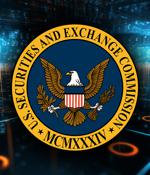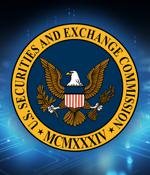Security News

The SEC has instituted a set of guidelines "Requiring registrants to disclose material cybersecurity incidents they experience and to disclose on an annual basis material information regarding their cybersecurity risk management, strategy, and governance." These new guidelines went into effect on December 18, 2023, which means 2024 will be an important year for enterprises and how they adhere to current security regulations. Establishing a reporting infrastructure that sheds light on what, how, and when security incidents are disclosed is important for the industry at large and is a huge step toward having cybersecurity seen as a business-wide issue.

Someone has hijacked the X account of the US Securities and Exchange Commission, and posted an announcement saying the agency has decided to allow the listing of Bitcoin ETFs on registered national security exchanges. SEC X account hijacked, "Unauthorized tweet" posted.

The X account for the U.S. Securities and Exchange Commission was hacked today to issue a fake announcement on the approval of Bitcoin ETFs on security exchanges. "Today the SEC grants approval to Bitcoin ETFs for listing on registered national security exchanges," read the fake X post.

Breaking The SEC today said its Twitter/X account was hijacked to wrongly claim it had approved hotly anticipated Bitcoin ETFs, causing cryptocurrency to spike and then slip in price. In a now-deleted tweet shared in the past hour, the American financial regulator appeared to say: "Today the SEC grants approval for #Bitcoin ETFs for listing on all registered national securities exchanges. The approved Bitcoin ETFs will be subject to ongoing surveillance and compliance measures to ensure continued investor protection."

Breaking The SEC today said its Twitter account was hijacked to wrongly claim it had approved hotly anticipated Bitcoin ETFs, causing cryptocurrency to spike and then slip in price. In a now-deleted tweet, shared in the past hour, the American financial regulator appeared to say: "Today the SEC grants approval for #Bitcoin ETFs for listing on all registered national securities exchanges. The approved Bitcoin ETFs will be subject to ongoing surveillance and compliance measures to ensure continued investor protection."

The U.S. Securities and Exchange Commission's new rules around disclosure of cybersecurity incidents go into effect on Dec. 15 for public companies with fiscal years starting on or after that date.Now, those organizations are asking what they need to alter or enhance about their disclosure procedures, incident response and existing cyber capabilities.

The most notable example is the US Securities and Exchange Commission's new rules on cybersecurity risk management, strategy, governance and incident disclosure. The new disclosure rules are designed to provide investors with a greater understanding of the risks a listed company faces from cyber threats and the level of controls in place to mitigate that risk.

A ransomware gang, annoyed at not being paid, filed an SEC complaint against its victim for not disclosing its security breach within the required four days. This is over the top, but is just another example of the extreme pressure ransomware gangs put on companies after seizing their data.

The ALPHV/BlackCat ransomware operation has taken extortion to a new level by filing a U.S. Securities and Exchange Commission complaint against one of their alleged victims for not complying with the four-day rule to disclose a cyberattack. Hackers snitch to the SEC. According to DataBreaches.net, the ALPHV ransomware gang said they breached MeridianLink's network on November 7 and stole company data without encrypting systems.

The SEC's cybersecurity-related capabilities were again questioned when SolarWinds addressed the allegations that it didn't follow the NIST Cybersecurity Framework at the time of the attack. The thrust of the SEC's lawsuit concerns how the communication from and actions taken by the company and its CISO, Timothy G Brown, allegedly misled investors about its security practices and known risks, and there are claims SolarWinds did not directly address in its riposte.